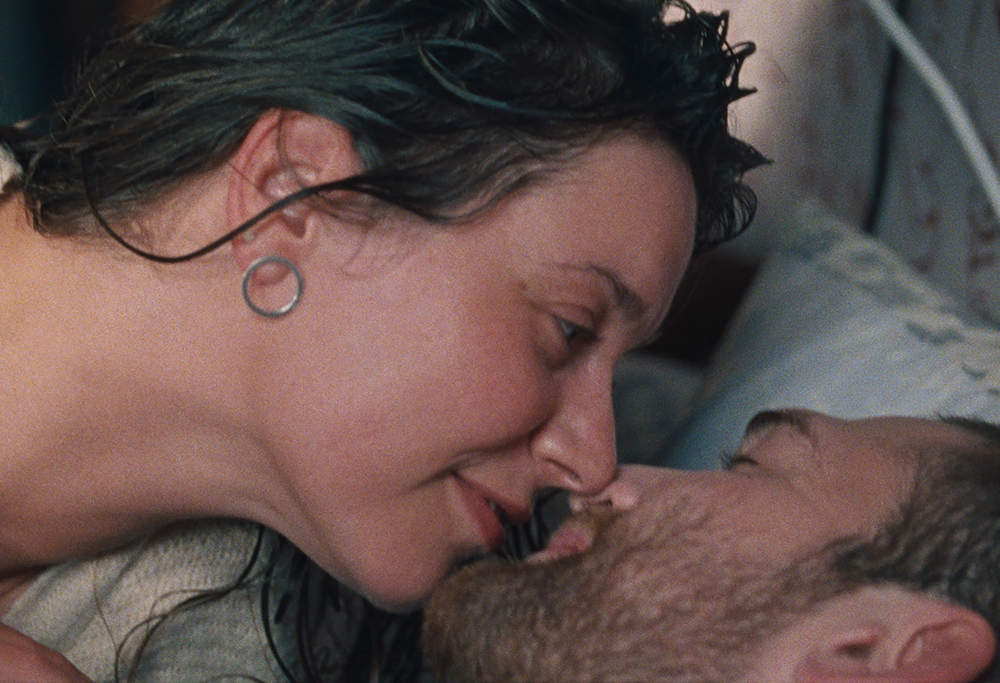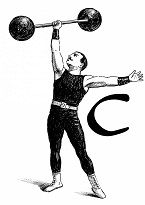There are a lot of films based on intimacy and delicacy, as well as the trust both partners have with one another within a newly formed relationship. We don’t get a lot of them each year because, in a way, it is hard to depict such sensations and emotions naturally on-screen or without seeming like its presentation is too over-the-top. Filmmakers like Jane Campion, Luca Guadagnino, and Mia Hansen-Løve are some of the few modern directors who know how to perfectly present tenderness and fragile closeness amidst various situations or genres. Take Guadagnino’s “Bones and All,” for example. It is a film about young cannibal lovers on the run, and it was one of the most beautiful love stories of last year. It all has to do with the care and heart of the director at the helm while still creating a story that can showcase those emotions effervescently.
‘Slow’ Suffers from Repetition and Pacing Issues
Marija Kavtaradze has the touch to create passionate and grounded scenes of tenderness and newly found love. Still, unfortunately, her latest film, “Slow,” doesn’t capture the viewer in its charm and romance due to the poorly knit-together structure and a pacing that the film’s own title can best describe. In this somewhat lackluster yet endearing cavort of modern intimacy and delicacy, there’s contemporary dancer Elena (Greta Grinevičiūtė), who meets Dovydas (Kęstutis Cicėnas) when he is assigned to interpret via sign language one of her classes to the deaf youth. Sparks are flying immediately as the two connect upon minutes of meeting each other. It is sort of like “love at first sight,” but the pair’s affection will run out sooner rather than later. It is frictionless and kinetic; Elena and Dovydas bond to the point of palpitating romance.
“Slow” begins with your usual romance plot developments and cliches. Nevertheless, it arrives with a fascinating twist that I personally haven’t seen before in a film. Dovydas discloses his asexuality to Elena, which brings a new element to this love tale. They honor each individual needs in tandem. Their love for one another has reached new heights. The problems they face are based on the confines of their sacrifices and compromises in the relationship. This is the most exciting part of Marija Kavtaradze’s latest for several reasons. First of all, it is an interesting take on intimate relationships that isn’t seen much in cinematic and television mediums. It paves the way for exploring new dynamics and discussions about how bonds work and whether people will compromise for them to strengthen.
‘Slow’s’ Leads Have Great Chemistry
In addition, because the two leads have great chemistry with one another, it helps us to believe in their respective characters. While it isn’t a mind-blowing idea, it sure is fascinating how Kavtaradze works this into her story. She tangibly crafts intimate scenes and put a lens on the feelings of both partners rather than siding with a particular one. The limitations of expressions may arrive through passion. Yet, the focus is on the sacrifices within the trust they have in one another. The conversations Elena and Dovydas have with one another regarding this topic are the best-written ones. In those scenes, they can express themselves outside the cinematic confines of a regular modern-day love story. However, the film isn’t a great success. Repetition is the thing that curses “Slow,” rather than precision in simplicity.
The story’s structure and chapter division within the relationship is repetitious and flows like its title, slowly (and to a fault). What does this structure look like? A bonding scene leads to intimacy, which later leads to discussion and completion. The film’s rinse-and-repeat structure makes it hard to believe in the story, although the characters feel genuine. That’s why it falters heavily. Kavtaradze fails to grasp the story she wants to tell, even though she has the tools to craft it. You begin to get tired of the same situations repeatedly happening. It doesn’t add to the film’s fascinating ideas about closeness and delicacy in a modern age. If it had interpolated different scenarios into their slowly-developing relationship, it would have developed a better experience. Otherwise, what we have here is full of charm but not enough spark to entice our thoughts on love.
“Slow” is currently playing at the Sundance Film Festival. The festival goes from January 19 – January 29. Join us for continual coverage.



